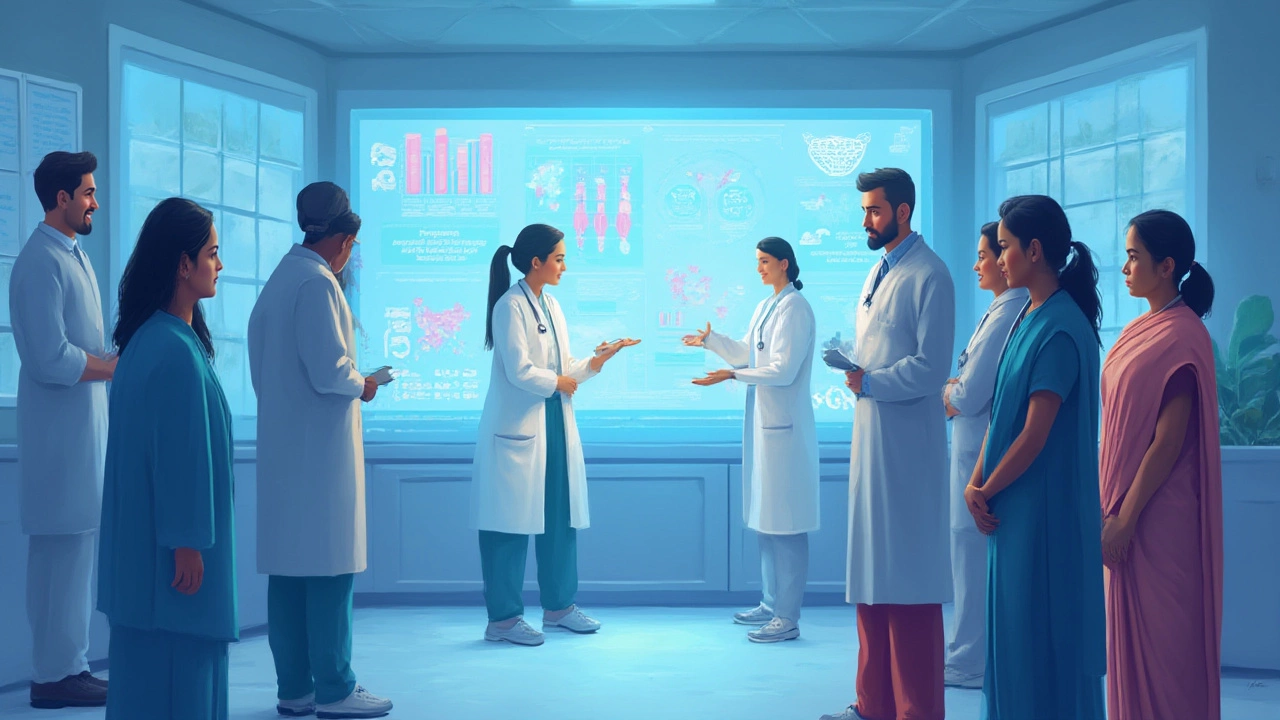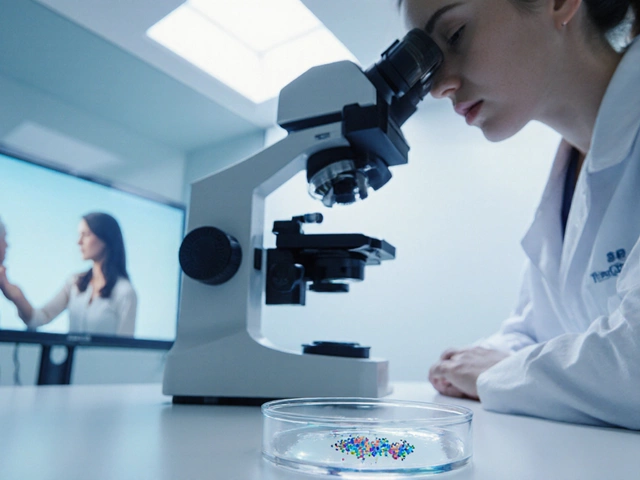It’s odd how people still whisper about IVF babies, as if they’re mysterious or somehow different. It’s 2025, and still you’ll hear questions like, “Are IVF babies healthy?”—maybe right after a family dinner, or in a neighbour’s WhatsApp group. The idea hangs over parents’ heads: does choosing IVF mean you’re rolling the dice with your baby’s wellbeing? Let’s shake up the conversation by digging into what the evidence actually says, tossing away the gossip and guilt, and serving up the reality—my dog Bella can nap, you can get the facts.
What the Science Actually Says About IVF Babies’ Health
The biggest concern everyone has is: will IVF babies have the same shot at a healthy life as those conceived naturally? Science gives us a clear starting point. Most research says that the vast majority of IVF babies are just as healthy as any other kids kicking a football at recess. In fact, the first IVF baby, Louise Brown, turned 47 in 2025 and is just as healthy as people her age. That’s not magic. It’s solid reproductive medicine backed by decades of studies.
So, what’s really going on under the hood? Large-scale studies—like the one published in 2024 in the Journal of Reproductive Medicine—showed that about 97% of IVF babies are born healthy. That’s almost on par with naturally conceived babies. Want more numbers? Here’s a quick look:
| Health Outcome | IVF Babies | Natural Conception |
|---|---|---|
| Major birth defects | ~4% | ~3% |
| Preterm birth | 10-15% | 6-10% |
| Low birth weight | 10-15% | 7-10% |
Yes, the rates of preterm birth and low birth weight are a bit higher with IVF, but doctors have gotten way better at minimizing the risks. Nowadays, single embryo transfer is the norm in India and other global IVF hotspots, which almost erases the old problem of twins or triplets—a big driver behind those extra risks. After birth, the vast majority of IVF babies hit the same milestones: crawling, walking, stacking Lego bricks, fighting bedtime. A Danish study even tracked thousands of IVF kids until adulthood and found no difference in intelligence or chronic disease rates compared to other kids in their schools.
Of course, many parents fret about long-term health—future risks of cancer, diabetes, or heart problems. The honest answer? No evidence shows that IVF itself causes any of these. Sometimes, what really matters is not IVF, but parental age or underlying health issues—reasons why someone chose fertility treatment in the first place.
False alarms are everywhere, often fanned by clickbait headlines or half-heard relatives. Remember, babies born from IVF are no more likely to have autism or developmental disorders than other children (confirmed by a 2023 Australian cohort study of 300,000 children). So much for the scary stories.

Common IVF Myths vs. What Actually Happens
The rumor mill keeps turning. Some folks still believe IVF babies are ‘weaker’ or ‘genetically odd.’ Truth is, today’s IVF is very close to natural conception—the only big difference is where fertilization happens. Science in a dish, rather than inside a uterus. No spooky chemicals, no secret gene editing. Just sperm meeting egg in a controlled setting.
One huge myth is that IVF babies are more likely to have genetic diseases. This one always bothered me. All embryos—IVF or not—have the same rules of genetics, only with IVF you can add extra safety. For example, if there’s a family history of, say, thalassemia or cystic fibrosis, parents can screen embryos via Preimplantation Genetic Testing (PGT) before putting them in the uterus. This is actually an edge over natural conception. Your neighbour’s cousin probably can’t screen for rare disorders during her regular pregnancy, right?
Another story you’ll hear: IVF increases the chance of congenital disabilities. The real deal? There is a very slight uptick in statistical risk, about 1% higher, but specialists say it’s mostly related to older parental age or underlying infertility—not IVF itself. So you’re not increasing risk just by walking into a clinic. And if you’re wondering, IVF kids don’t ‘age differently’ or have strange allergies. A fun aside: some clinics even report their IVF kids are slightly taller on average, probably thanks to older, taller parents.
People love to throw around the idea that IVF babies “need more medical care.” Actually, after the slight bump in risk for prematurity and low birth weight, newborn health is usually solid. They catch up fast. One interesting detail: an international meta-analysis from 2022 found that IVF babies use the emergency room no more often than their classmates.
Maybe you’ve seen headlines like “Are IVF Babies Less Intelligent?” Good news: plenty of studies show comparable development. A team at the University of Melbourne tracked 1400 IVF kids into their twenties—no difference in school scores, college attendance, or job outcomes. And if you think of the kids running around the park, laughing in the mud, can you really tell which were born from a hormone shot?
Here’s another angle: emotional health. Every so often a psychologist pops up to wonder if IVF kids feel more anxious. Turns out, their rates of childhood anxiety and depression are no different than other kids—this was checked in a 2023 Norwegian twin study. So, these are silly worries no kid needs hanging over them.
Some tips: if you opt for IVF, stick to a fertility center with good success rates and experienced doctors. Ask them if they routinely do single-embryo transfer—less is more. Take all those prenatal vitamins, eat healthy, and keep up with regular checkups. IVF or not, caring during pregnancy matters a ton for baby health.

Real Parent Tips, Ongoing Research, and When to Ask More Questions
Let’s cut through all the expert talk. What do real parents and people who live IVF every day think? You’ll find their worries are basic but real—“Will my kid face stares or awkward questions?” The truth: once your child is born, nobody can guess how they got here. Kids are curious about puppies like Bella, not birth methods. Some parents just tell their IVF story from day one—it’s just another fun detail, like “Mummy loves coffee” or “Daddy snores.”
But how about what you can do to set your IVF baby up for the best start? Here’s what the doctors and seasoned IVF moms and dads recommend:
- Focus on the first 1000 days: That’s pregnancy and the first two years. Nutrition, sleep, vaccinations, checkups—IVF or not, this builds a solid health base.
- Don’t skip prenatal screenings—IVF gives you access to genetic testing, lean into it if it’s offered, especially if you have a family history of anything rare.
- Build a positive connection—early skin-to-skin contact, breastfeeding or formula support if needed, and snuggles aren’t “nice to have,” they set the tone for child development.
- Don’t get caught in websites rabbit holes. Rely on your own doctor for real-time, personal advice. Every pregnancy is different, whether it’s from a lab or from a long weekend getaway.
If you’re curious about ongoing research, scientists are looking at subtle things—like epigenetic changes or how the environment in IVF labs can improve. For instance, air quality in the lab keeps getting better, which seems to help embryos. There was a small study in 2023 from Tokyo showing that Vitamin D supplementation in IVF mothers might reduce preterm birth. Look for practical, not magical, tweaks as tech marches forward.
But if you’re ever unsure—if your pregnancy is high-risk, or if your baby needs extra care at birth—don’t hesitate to ask anything on your mind. Neonatologists and pediatricians these days are super familiar with IVF backgrounds; there’s zero judgment and a lot of know-how. The care you’ll get is tailored for you, not a one-size-fits-all scheme.
So, are IVF babies healthy? The data, the doctors, and the playgrounds say yes. Maybe your kid will have stubborn curls or be obsessed with Paw Patrol. How they arrive on this planet? That’s just the first chapter—and it’s a science-backed, strong one.






